| Umělec magazine 2004/1 >> Roman Týc | List of all editions. | ||||||||||||
|
|||||||||||||
Roman TýcUmělec magazine 2004/101.01.2004 Radek Wohlmuth | new face | en cs |
|||||||||||||
|
Roman Týc came into this world in 1974, but was really born last January together with the Heart. That was when he cut himself off from his past and started to make a mess of things. As he was preparing Ohnívání (Rotting Away) for Prague’s Art Factory, his hair was combed over the crown of his head like a comic book villain child, and nowadays he looks more like Trautenberk (Ed. — A mean, fat, ugly and really bad character from a Czech fairy tale, supposed to be a capitalist).
Roman Týc is a key member of the art group “Z toho ven” or 100 hoven. It is probably unnecessary to go over their work, which, after a long time, was able to freshen the air in the Czech bog, but let’s do it anyway. Their first unbeatable performance was the partial covering of Jiří David’s giant neon heart, which had stood for months blinking over the Prague Castle, effectively transforming the heart into a question mark. The “visual twenty-minute concert” of six people, extras and a roll of tar paper took place by sheer coincidence on presidential election day. Their second action was praiseworthy for its skill in covering, organizing and interconnecting various subcultures, as the group of artists romped through night spray painting 750 city light ad boxes with an upturned “S” in the shape of a question mark, which became their trademark: www.ztohoven.cz. This educational anti-ad manifesto, along with their own art opening in the Dejvická metro station, underlined a perfectly circular ad campaign against ads. Some might consider this counter-productive, but why not. Roman Týc has a weakness for live events on the edge and the technical image, especially the video recording as a document and means of free expression. After spending so many years among sprayers, he still carries the adrenaline surge within him. To this day he applies what he calls the principles of graffiti to his daily routine, and in his actions he walks the line of legality. In September 2002, floods ravaged Prague and the Vltava river was a swollen and torrential menace. At its height Roman Týc slammed a small down boat the river and through the city, and the event was documented by Jakub Nepraš. Roman Týc later supplied the background dialogue to the documentary, and the work took the form of a “visual poem,” something typical of his art. Next in his cycle of elements was Ohnívání (Rotting Away) — a reaction to student Zdeněk Adamec’s burning himself to death last March in front of the National Museum. Originally Týc wanted to reenact the act using stunt men. But in the end the gaze through the flames — like the stormy waves of the river — changed into the burning of a large voodoo doll. The life-sized dynamically moving, mummy-like figure in white robes had a metal skeleton covered with tar and plastic. One hour before the burning Roman Týc sat on the stairs of the museum with a canister of gasoline and tried to perceive his surroundings. Total hell. After the performance all that was left was a charred husk in the shape of a human body. People occasionally threw flowers. His game Grab that Policeman’s Cap and Take Off attracted attention, and in time appeared on the web. There was a manual and levels of difficulty — one cap (base), two at once (double catch), beret (summer extras), clean game (a run), pollo (action executed from a passing vehicle). There is a bonus for approaching policemen. The same kind of dubious feelings that appeared in the “city light” project soon crept up. The game made it onto Nike’s web pages, saying that it was a “custom-made” ad. The reality is much more amusing. The game worked for a few years and when there was a chance, the artist sold it, like other artists sell pictures. He had the same experience as the dadaists — you can sell anything. Even a crime. Roman Týc tends to work with traditional symbolic themes — elements or deadly sins, but more than anything he wishes to unravel the question of identity, his own and others’, which almost always permeates his activity and existence. The outer reaches of life situations, death or strong emotions, can be seen more purely, but he brings them even closer by showing what happens his personal experience. Last year at an exhibition of new media in Cheb he exhibited a glass door from his childhood bedroom, where he had survived various traumas. When he looked through the door with his peripheral vision the sequence of sounds, lights and shadows foretold future events. He forced his father to repeat some of the childhood scenarios. He also used personal, harrowing pictures from the family archive projected on four screens and mixed in with pictures from a Dan Bárta concert. Even the most impressive things, though they sometimes have a slightly pathetic undertone, are absolutely experienced, and that makes them persuasive. And it is altogether unimportant whether they are “narrative” adventures, or only partly decipherable moody sketches. But Roman Týc also likes to play. For one music sequence he made an “aesthetic thing” — M&Ms in bath suds. He is fascinated by Mr. Makovička in the German protectorate documentary, who tried to fly using feathers, just like an angel. Besides all of this Týc still has to live a “real life” and earn money. At the same time he’s scared that he is capable of hating so much that he could kill. His conscience, he said, has “killed” him, and so he’s thinking about building himself a tomb, which would stand waiting for him the rest of his life. At three o’clock in the morning as I was leaving his studio in an old butcher’s shop where the signboard reads “flowers,” he was getting ready to catch a mouse. On my way home I poured through the list of his neck-breaking actions. He told me that he doesn’t want to suffer for art, nor sacrifice himself, and it’s definitely not true that everything he does is art. But if it’s not, then what is it?
01.01.2004
Recommended articles
|
|||||||||||||
|
04.02.2020 10:17
Letošní 50. ročník Art Basel přilákal celkem 93 000 návštěvníků a sběratelů z 80 zemí světa. 290 prémiových galerií představilo umělecká díla od počátku 20. století až po současnost. Hlavní sektor přehlídky, tradičně v prvním patře výstavního prostoru, představil 232 předních galerií z celého světa nabízející umění nejvyšší kvality. Veletrh ukázal vzestupný trend prodeje prostřednictvím galerií jak soukromým sbírkám, tak i institucím. Kromě hlavního veletrhu stály za návštěvu i ty přidružené: Volta, Liste a Photo Basel, k tomu doprovodné programy a výstavy v místních institucích, které kvalitou daleko přesahují hranice města tj. Kunsthalle Basel, Kunstmuseum, Tinguely muzeum nebo Fondation Beyeler.
|








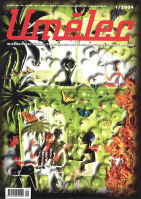










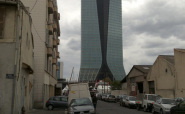
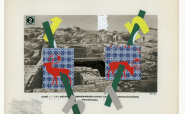
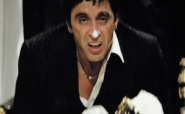
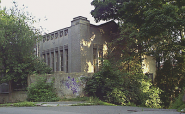







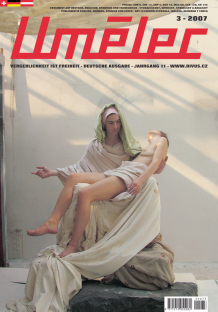




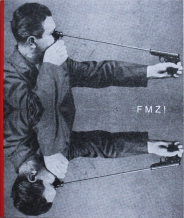
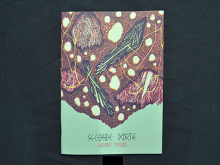
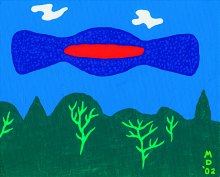
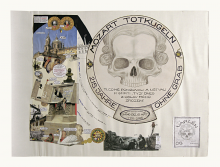


 New book by I.M.Jirous in English at our online bookshop.
New book by I.M.Jirous in English at our online bookshop.
Comments
There are currently no comments.Add new comment